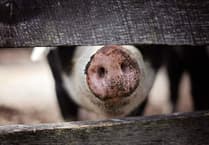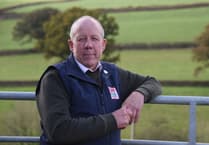As Welsh farming families consider the implications of the UK government’s plan to limit 100% agricultural and business relief for inheritance tax (IHT) to the first £1m of value, Farming Connect is launching a roadshow of events across Wales to help businesses consider different options for protecting their assets including succession planning.
The Autumn Budget on October 30 last year included significant proposed changes to IHT rules and these will impact many farm businesses.
From April 2026, inherited agricultural assets worth more than £1 million, which were previously exempt, will have to pay inheritance tax at 20 per cent.
NFU Cymru says the move poses a threat to the family farm structure and the nation’s food security, but the UK Government insists the "vast majority" of farmers will not be impacted.
Demand for the advice is anticipated to be high as a result therefore a series of events is planned where experts in farm IHT issues and succession planning will provide guidance on the planned measures and advise on how to mitigate the effects of the change.
They will include Dr Nerys Llewelyn Jones, of Agri Advisor, who says the changes further emphasise the importance of succession planning such as the seven-year rule which means someone could transfer an asset at least seven years before their death, without having to pay IHT on that asset. These are referred to as Potentially Exempt Transfers (PETs)
“The changes could lead to more transfers between generations before death but reservation of benefits rules apply and therefore this must be considered carefully,’’ says Dr Llewelyn Jones.
“If these rules are broken, for example if the gift donor is still benefiting in some way from the estate, for example living in the farmhouse, it may be referred to as a “failed PET” and will then become subject to IHT.’’
She anticipates heavier scrutiny on valuations and a greater need to have assets valued.
Until now, farmers will have been advised to essentially “keep farming” for as long as possible to qualify for Agricultural Property Relief (APR).
“This will apply possibly to assets that they are seeking APR and Business Property Relief (BPR) on, including those assets within the £1m cap’’ says Dr Llewelyn Jones.
However, there will be changes to the legal advice previously given as a result of the Budget and she strongly advises farmers to seek professional advice and put a plan in place.
The local event takes place at Monmouthshire Livestock Centre, Raglan on January 21




